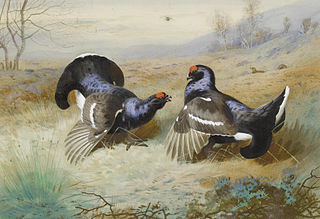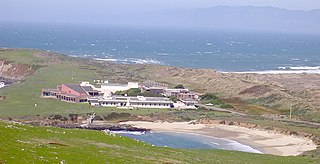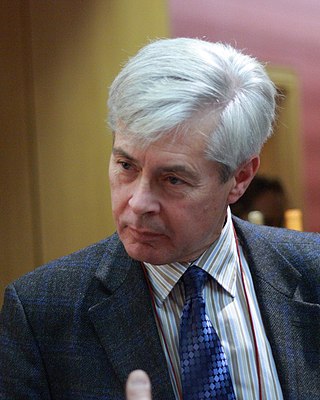Related Research Articles

Group selection is a proposed mechanism of evolution in which natural selection acts at the level of the group, instead of at the level of the individual or gene.
Sociocultural evolution, sociocultural evolutionism or social evolution are theories of sociobiology and cultural evolution that describe how societies and culture change over time. Whereas sociocultural development traces processes that tend to increase the complexity of a society or culture, sociocultural evolution also considers process that can lead to decreases in complexity (degeneration) or that can produce variation or proliferation without any seemingly significant changes in complexity (cladogenesis). Sociocultural evolution is "the process by which structural reorganization is affected through time, eventually producing a form or structure that is qualitatively different from the ancestral form".

The University of California Natural Reserve System (UCNRS) is a system of protected areas throughout California. The reserves support UC's mission of teaching, research, and public service. Unlike national and state parks, they are not available for recreational uses, because they were specifically created to enable UC scientists to conduct research free from such distractions.
Dual inheritance theory (DIT), also known as gene–culture coevolution or biocultural evolution, was developed in the 1960s through early 1980s to explain how human behavior is a product of two different and interacting evolutionary processes: genetic evolution and cultural evolution. Genes and culture continually interact in a feedback loop, changes in genes can lead to changes in culture which can then influence genetic selection, and vice versa. One of the theory's central claims is that culture evolves partly through a Darwinian selection process, which dual inheritance theorists often describe by analogy to genetic evolution.

Peter J. Bowler is a historian of biology who has written extensively on the history of evolutionary thought, the history of the environmental sciences, and on the history of genetics. His 1984 book, Evolution: The History of an Idea is a standard textbook on the history of evolution; a 25th anniversary edition came in 2009. His 1983 book The Eclipse of Darwinism: Anti-Darwinian Evolution Theories in the Decades Around 1900 describes the scientific predominance of other evolutionary theories which led many to minimise the significance of natural selection, in the first part of the twentieth century before genetics was reconciled with natural selection in the modern synthesis.

Evolutionary educational psychology is the study of the relation between inherent folk knowledge and abilities and accompanying inferential and attributional biases as these influence academic learning in evolutionarily novel cultural contexts, such as schools and the industrial workplace. The fundamental premises and principles of this discipline are presented below.

Dan Sperber is a French social and cognitive scientist and philosopher. His most influential work has been in the fields of cognitive anthropology, linguistic pragmatics, psychology of reasoning, and philosophy of the social sciences. He has developed: an approach to cultural evolution known as the epidemiology of representations or cultural attraction theory as part of a naturalistic reconceptualization of the social; relevance theory; the argumentative theory of reasoning. Sperber formerly Directeur de Recherche at the Centre National de la Recherche Scientifique is Professor in the Departments of Cognitive Science and of Philosophy at the Central European University in Budapest.
The Tanner Lectures on Human Values is a multi-university lecture series in the humanities, founded in 1978, at Clare Hall, Cambridge University, by the American scholar Obert Clark Tanner. In founding the lecture, he defined their purpose as follows:
I hope these lectures will contribute to the intellectual and moral life of mankind. I see them simply as a search for a better understanding of human behavior and human values. This understanding may be pursued for its own intrinsic worth, but it may also eventually have practical consequences for the quality of personal and social life.
Dominic D. P. Johnson is an Alistair Buchan Professor of International Relations at St Antony's College, Oxford.

Joseph Henrich is an American professor of human evolutionary biology at Harvard University. Before arriving at Harvard, Henrich was a professor of psychology and economics at the University of British Columbia. He is interested in the question of how humans evolved from "being a relatively unremarkable primate a few million years ago to the most successful species on the globe", and how culture shaped our species' genetic evolution.
Cultural group selection is an explanatory model within cultural evolution of how cultural traits evolve according to the competitive advantage they bestow upon a group. This multidisciplinary approach to the question of human culture engages research from the fields of anthropology, behavioural economics, evolutionary biology, evolutionary game theory, sociology, and psychology.
Robert Turner Boyd is an American anthropologist. He is professor of the School of Human Evolution and Social Change (SHESC) at Arizona State University (ASU). His research interests include evolutionary psychology and in particular the evolutionary roots of culture. Together with his primatologist wife, Joan B. Silk, he wrote the textbook How Humans Evolved.

Scott P. Carroll is an American evolutionary biologist and ecologist affiliated with the University of California, Davis and the University of Queensland. Carroll's main interests are in exploring contemporary evolution to better understand adaptive processes and how those processes can be harnessed to develop solutions to evolutionary challenges in food production, medical care and environmental conservation. With Charles W. Fox, Carroll edited Conservation Biology: Evolution in Action, a book published by Oxford University Press in 2008 in which contributors, across the field of evolutionary biology and conservation, apply evolutionary thinking to concepts and practices in conservation biology, an area of research sometimes called evolutionary ecology. Carroll is founding director of the Institute for Contemporary Evolution.
Evolutionary psychology has traditionally focused on individual-level behaviors, determined by species-typical psychological adaptations. Considerable work, though, has been done on how these adaptations shape and, ultimately govern, culture. Tooby and Cosmides (1989) argued that the mind consists of many domain-specific psychological adaptations, some of which may constrain what cultural material is learned or taught. As opposed to a domain-general cultural acquisition program, where an individual passively receives culturally-transmitted material from the group, Tooby and Cosmides (1989), among others, argue that: "the psyche evolved to generate adaptive rather than repetitive behavior, and hence critically analyzes the behavior of those surrounding it in highly structured and patterned ways, to be used as a rich source of information out of which to construct a 'private culture' or individually tailored adaptive system; in consequence, this system may or may not mirror the behavior of others in any given respect.".
Cultural evolution is an evolutionary theory of social change. It follows from the definition of culture as "information capable of affecting individuals' behavior that they acquire from other members of their species through teaching, imitation and other forms of social transmission". Cultural evolution is the change of this information over time.
There are two main approaches currently used to analyze archaeological remains from an evolutionary perspective: evolutionary archaeology and behavioral ecology. The former assumes that cultural change observed in the archaeological record can be best explained by the direct action of natural selection and other Darwinian processes on heritable variation in artifacts and behavior. The latter assumes that cultural and behavioral change results from phenotypic adaptations to varying social and ecological environments.
Charles Remington Goldman is an American limnologist and ecologist.
Joan B. Silk is an American primatologist, Regents Professor in the School of Human Evolution and Social Change (SHESC) at Arizona State University. Her research interests include evolutionary anthropology, animal behavior, and primatology. Together with her anthropologist husband, Robert T. Boyd, she wrote the textbook How Humans Evolved.